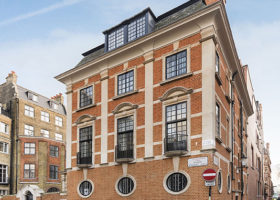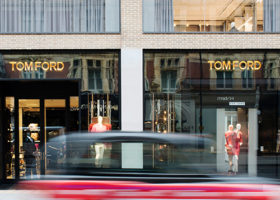Cadogan announces ESG updates one year on from Chelsea 2030 launch
Highlights include a 10% carbon saving from a 2019 baseline, a 12% increase in green infrastructure – including a ‘pocket forest’, and a 7% increase in the Estate’s operational recycling rate
Cadogan has released an annual progress update on their ‘Chelsea 2030’ stewardship strategy, launched in Summer 2021. Significant progress has been made towards meeting the 12 targets, across 7 impact areas including carbon emissions, air quality, greening, waste, wellbeing and culture – including a commitment to emit Net Zero Carbon by 2030.
Since Cadogan’s baseline year of 2019, progress highlights include a 10% reduction in total emissions, a 12% increase in Urban Greening Factor and 7% increase in the Estate’s operational recycling rate. In partnership with the Royal Borough of Kensington and Chelsea, Cadogan appointed an ‘Employment Opportunities Coordinator’ to proactively support local businesses with recruitment and create job opportunities for local residents. Charitable giving and support saw Cadogan’s total direct and indirect social contribution increase by 200% on 2019, demonstrating a significant response in support of the community at a challenging time.
Hugh Seaborn, Chief Executive, comments “It is vital that we play our part in contributing to a more sustainable future. Chelsea 2030 strengthens Cadogan’s stewardship objectives to bring pressing issues such as carbon emissions, air quality and waste to the fore, while also consistently helping to improve local quality of life. It is satisfying to see the progress already being made against these ambitious environmental and community targets.”
Project highlights have included the creation of a ‘pocket forest’– 240m2 of biodiverse urban rewilding in the heart of Chelsea – a single-use plastic free Duke of York Square Fine Food Market, and extensive collaboration with occupiers and suppliers to consolidate vehicle journeys and improve local air quality.
Kate Neale, Head of Sustainability, adds, “Consistent with Cadogan’s long-term business horizons and ambitious targets for creating a more sustainable Chelsea, it is good to clearly see the progress made during such a challenging time. In addition to an absolute reduction of our total carbon footprint by 10%, we have achieved a 6% reduction in emissions intensity – further decoupling emissions from business performance on our journey to net zero.”
Chelsea 2030 was developed through extensive stakeholder and community consultation and materiality assessments, in the context of the Paris Agreement and UN Sustainable Development Goals, and sets out how Chelsea can significantly reduce its environmental impact, support a thriving community and improve climate resilience. The strategy is supported by Cadogan’s Net Zero Pathway.




